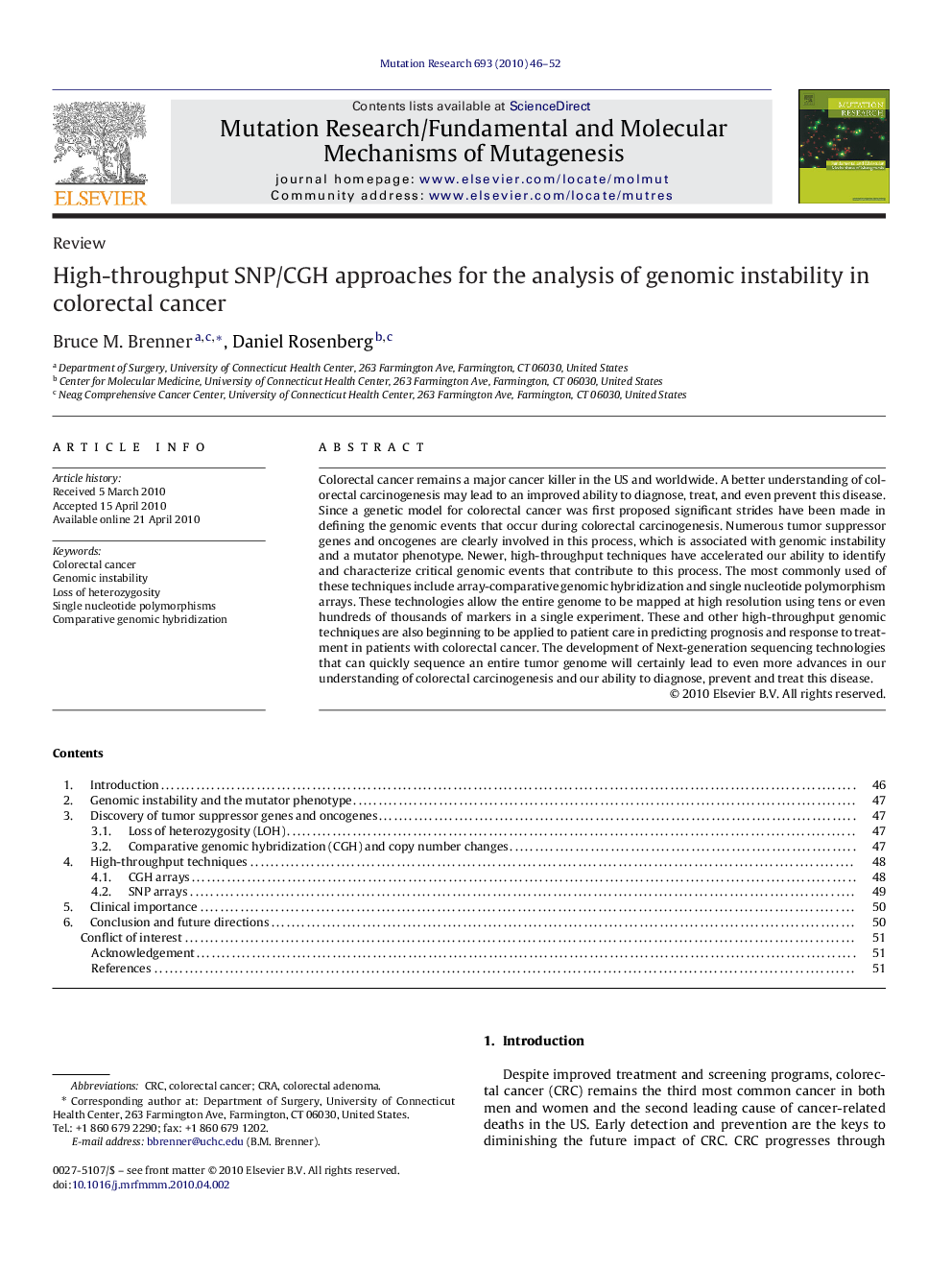| Article ID | Journal | Published Year | Pages | File Type |
|---|---|---|---|---|
| 2146708 | Mutation Research/Fundamental and Molecular Mechanisms of Mutagenesis | 2010 | 7 Pages |
Colorectal cancer remains a major cancer killer in the US and worldwide. A better understanding of colorectal carcinogenesis may lead to an improved ability to diagnose, treat, and even prevent this disease. Since a genetic model for colorectal cancer was first proposed significant strides have been made in defining the genomic events that occur during colorectal carcinogenesis. Numerous tumor suppressor genes and oncogenes are clearly involved in this process, which is associated with genomic instability and a mutator phenotype. Newer, high-throughput techniques have accelerated our ability to identify and characterize critical genomic events that contribute to this process. The most commonly used of these techniques include array-comparative genomic hybridization and single nucleotide polymorphism arrays. These technologies allow the entire genome to be mapped at high resolution using tens or even hundreds of thousands of markers in a single experiment. These and other high-throughput genomic techniques are also beginning to be applied to patient care in predicting prognosis and response to treatment in patients with colorectal cancer. The development of Next-generation sequencing technologies that can quickly sequence an entire tumor genome will certainly lead to even more advances in our understanding of colorectal carcinogenesis and our ability to diagnose, prevent and treat this disease.
